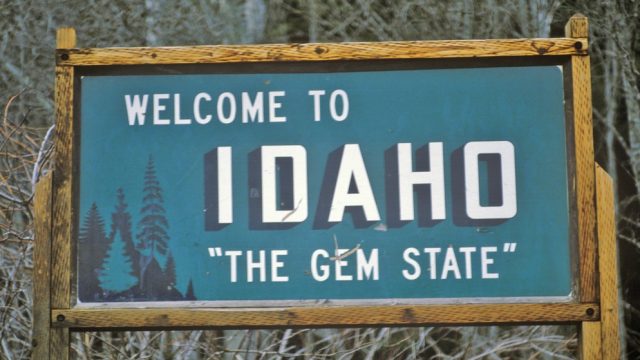Idaho joins Syria, Zimbabwe in growing its GDP

GDP ON THE RISE: Idaho’s GDP is up, but so is Zimbabwe’s and Syria’s.
By Wayne Hoffman | Idaho Freedom Foundation
Gov. Butch Otter’s announcement that the state of Idaho had achieved his goal of $60 billion in economic output is interesting, but not particularly significant.
Otter has long touted “Project 60,” the objective of raising state’s gross domestic product, or GDP, from $51.7 billion in 2007 to $60 billion.
“Almost five years ago, we established a specific benchmark for creating jobs and growing the state’s economy, and I’m thrilled that we’ve achieved that goal despite weathering some of the toughest economic times in memory,” Otter said.
I think the governor is sincere in his desire to bring economic growth to the state. He, and everyone else, wants the state to return to life as it was prior to the start of the recession. No one should fault him for setting a goal and trying to reach it. But I tend to think he’s measuring the wrong thing (GDP) and doing so incorrectly. GDP is up in a lot of places, including Zimbabwe and Syria.
Beyond that, total GDP doesn’t tell nearly as much as the Otter administration says it does. In addition to economic growth, total GDP reflects inflation and even changes in population. Higher prices, more people and more economic activity all add into the total GDP. So, yes, total GDP is up. But does that really translate into better economic conditions for Idahoans? No.
Real GDP, which takes a look at economic growth “chained” to a specific point in time, minus inflationary impacts, offers a better picture. But there again, if you’re looking for a winning story from Idaho, try again. Every state in the West except Wyoming and New Mexico have seen GDP grow faster than Idaho in recent years.
Per capita personal income is a better measure, and the results show we have a long way to go before Idaho can break out the champagne. Idaho’s per capita income is 49th in the nation at about $33,750. That’s a drop in our ranking from number 43 in 2007. Idaho’s personal income is growing, albeit not fast enough.
The measures that count when it comes to economic development might be of more interest to elected officials, who, after all, don’t create jobs. They inherently stand in the way of job creation. How they manage to get out of the way of job creation is something of value. That’s something worth measuring and reporting on.
How many agencies does one have to talk to in order to start a business? How many days or months does it take to get through the permitting and licensure process? How many regulations do businesses and their employees have to learn in order to operate? What taxes and fees do businesses and employees have to pay in order to participate in the marketplace? Are those assessments going up or are they going down? Are taxes fair, predictable and low?
These are the questions that should be asked. The answers provide the real measures of the state and its economic performance, and show whether the state is truly better off now than it was prior to the start of the recession.
Wayne Hoffman is president of the Idaho Freedom Foundation.







